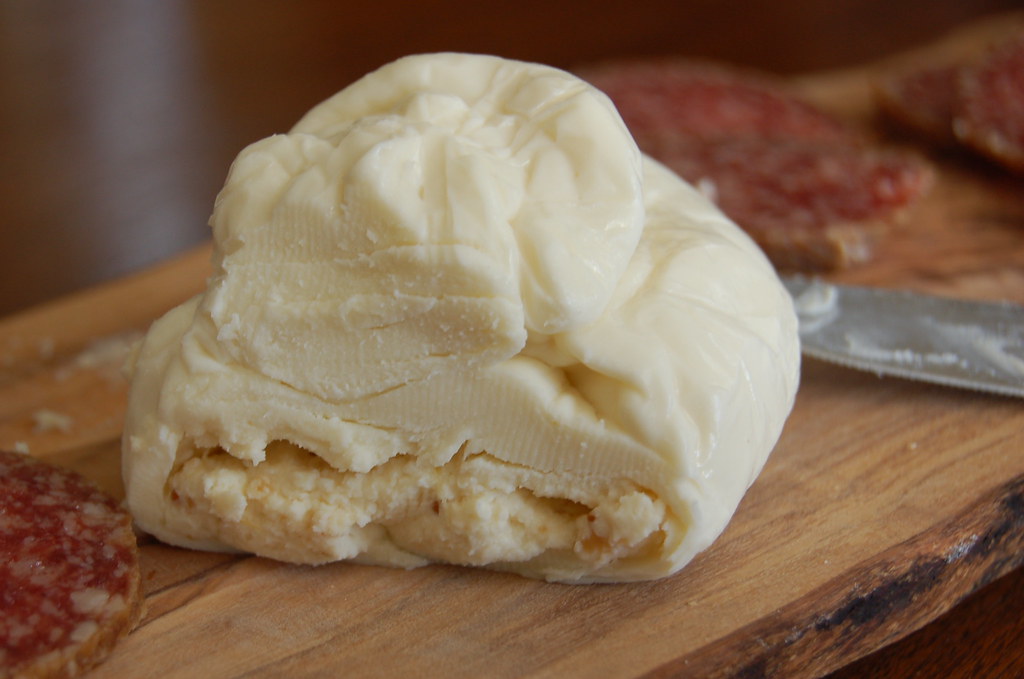Welcome, cheese enthusiasts, gastronomes, and curious foodies alike! Today, we embark on a mouthwatering journey into the world of burrata cheese, an Italian delicacy cherished for its rich and creamy texture. Picture yourself savoring a slice of fresh bread, topped with a luscious mound of burrata, as its velvety interior spills out, tantalizing your taste buds. But as with any delectable treat, the question arises: how long does burrata cheese last?
When purchased from a reputable source or made fresh, burrata cheese typically has a relatively short shelf life compared to aged cheeses. On average, it can last for about 2 to 3 days when stored properly in the refrigerator. However, it’s important to note that burrata is at its prime when it’s very fresh, ideally consumed within the first 24 to 48 hours after production.
To maximize the lifespan and quality of your burrata cheese, here are a few essential tips to follow:
- Check the expiration or best-by date: If you purchased pre-packaged burrata cheese, refer to the date provided on the packaging. Consume it before the indicated date for the best taste.
- Store it in the refrigerator: Place the burrata cheese in its original packaging or wrap it tightly in plastic wrap to prevent moisture loss and exposure to other odors. Keep it in the coldest part of your refrigerator, ideally at temperatures between 34°F to 38°F (1°C to 3°C).
- Avoid storing with strong-smelling foods: Burrata cheese easily absorbs odors, so it’s advisable to keep it away from pungent foods like onions, garlic, or strong cheeses.
- Handle with care: Burrata cheese is delicate, so be gentle when handling it to prevent damage or rupture of the outer shell.
Remember, the fresher the burrata cheese, the better the taste and texture. If you notice any signs of spoilage, such as an off smell, mold growth, or a slimy texture, it’s best to discard the cheese to avoid any potential foodborne illnesses.

Can I store burrata cheese in olive oil or brine to preserve it?
Storing burrata cheese in olive oil or brine is not a recommended method for preserving it. Unlike some other types of cheese, burrata is best enjoyed fresh and should not be stored for an extended period.
The delicate nature of burrata cheese, with its soft and creamy interior, makes it highly perishable. Storing burrata in oil or brine can affect its texture and flavor negatively. The cheese can become overly saturated or lose its characteristic creaminess when immersed in liquid for an extended time.
Moreover, storing burrata in oil or brine can introduce moisture and create an environment that promotes bacterial growth, leading to potential spoilage and food safety concerns.

Can I freeze burrata cheese to prolong its shelf life?
Freezing burrata cheese is not recommended, as it can significantly alter its texture and affect the overall quality and taste. Burrata cheese is known for its delicate, creamy interior, and freezing can cause the cheese to become watery and lose its characteristic creaminess.
The freezing process can lead to the formation of ice crystals, which can break down the structure of the cheese and result in a grainy or mushy texture upon thawing. Additionally, the high moisture content of burrata cheese can cause it to become rubbery or lose its flavor when frozen and thawed.
If you find yourself with leftover burrata cheese that you’re unable to consume within its recommended shelf life, it’s best to use it in recipes that require melting or cooking, such as in pasta dishes, gratins, or sauces. This way, you can still enjoy the flavors of the cheese while incorporating it into a cooked dish where the texture changes are less noticeable.
To make the most of your burrata cheese, it’s advisable to purchase or make it in smaller quantities, ensuring that you can fully savor its freshness and creamy goodness within its optimal shelf life of a few days when stored properly in the refrigerator.

Are there any alternatives to burrata cheese with a longer shelf life?
There are alternative cheeses that have a longer shelf life compared to burrata cheese. While these alternatives may not have the exact same flavor and texture profile as burrata, they can still provide a delicious and creamy experience. Here are a few options:
- Fresh Mozzarella: Mozzarella cheese is similar to burrata in terms of its soft and creamy texture. While it lacks the decadent filling of burrata, fresh mozzarella can be stored for a slightly longer time in the refrigerator, typically up to one week.
- Cream Cheese: Cream cheese is a versatile and spreadable cheese that can be used in a variety of dishes. It has a longer shelf life compared to burrata and can be stored for several weeks in the refrigerator. However, note that cream cheese has a denser texture and tangier flavor compared to burrata.
- Ricotta Cheese: Ricotta cheese is a creamy and slightly grainy cheese that can be a good substitute for burrata in certain recipes. It has a longer shelf life, usually lasting up to two weeks in the refrigerator. Ricotta is often used in both savory and sweet dishes, making it a versatile alternative.
- Cottage Cheese: Cottage cheese is a fresh cheese made from curds and has a mild and slightly tangy flavor. It has a longer shelf life compared to burrata, typically lasting up to a few weeks when stored properly in the refrigerator.
While these alternatives may not provide the exact same experience as burrata cheese, they can be used in various recipes and offer a creamy texture and delicious taste. It’s important to note that each cheese has its own unique characteristics, so experimenting with different options can help you find the best substitute based on your preferences and specific culinary needs.
Relevant Articles
How Long Does Beef Tallow Last?
How Long Does Red Velvet Cake Last In The Fridge?

Comments are closed